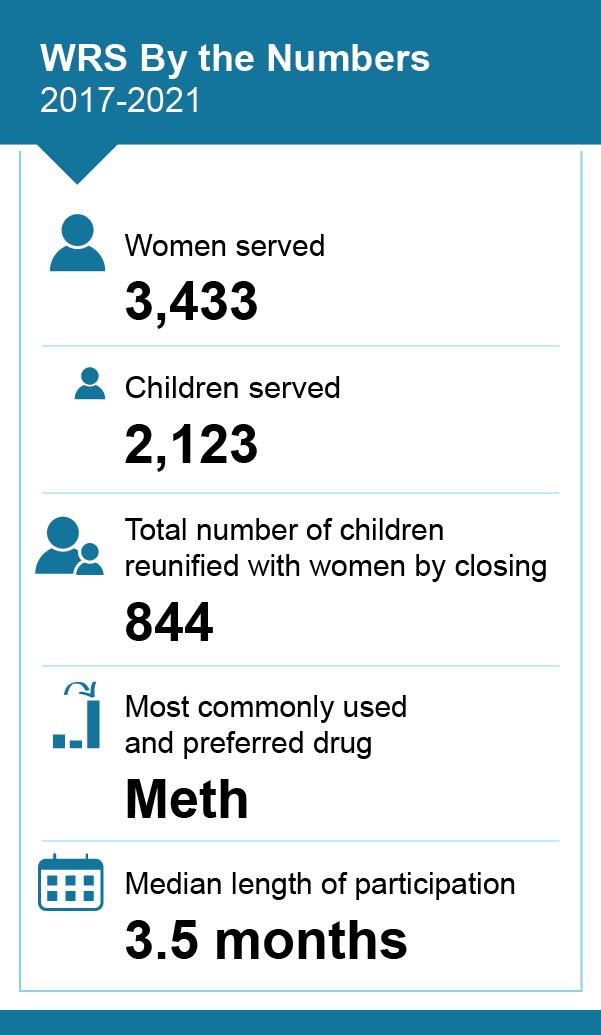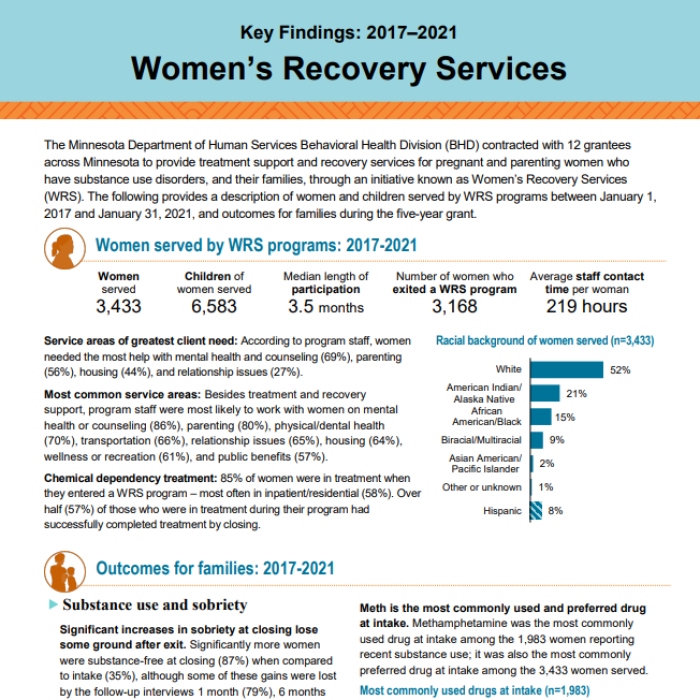Everyone benefits when we invest in women.
A recent return on investment report found that each dollar invested in WRS generates a net benefit of at least $4.05 for society. These benefits result from improved education and employment outcomes, lower health care costs, a lowered arrest rate, reduced child protection involvement, and a lower likelihood of homelessness compared to before they began participating in a WRS program. It pays to invest in women!
Stable housing is key to recovery.
Both in 2016 and 2021, we found that women who secured stable housing that was supportive to recovery by program exit were significantly more likely to achieve a number of positive outcomes. This included:
- a higher likelihood of sobriety or decreased substance use by the time they left the program and in the months following exit
- an increased chance of reunification with their kids by exit
- an increased chance of infants remaining with them (not placed outside of the home) following birth.
Access to mental health services increases the chance of success.
With the needed mental health supports, moms with substance use disorder can achieve sobriety. In the 2021 study, women who were connected to mental health services at closing had a significantly higher likelihood of:
- achieving sobriety or decreased use by the time they left the program and beyond
- successfully completing substance use treatment
- being reunified with their children at closing (after a formal out-of-home placement)
Long-term support is needed for women and families experiencing a substance use disorder.
Taken together, the stories and information that WRS grantee staff and participating women have shared with us point to the unyielding strength of women and the complexity of substance use disorder. Recovery is a journey, and while women make great strides in recovery programs, long-term support is needed to combat declines in sobriety over time.
WRS programs leverage the assets women bring, including educational degrees, supportive relationships with friends and family, and a deep commitment to their children. Programs also address challenges to sobriety, as at least 3 out of 4 women served by a WRS program live below the poverty line, have a mental health diagnosis, and have a history of housing insecurity. These added stresses can make parenting – and maintaining sobriety after program exit – particularly difficult, and make long-term access to substance use treatment and recovery services all the more critical.
The 2021 WRS report and previous analysis identify a number of factors that help women maintain their sobriety. Let’s continue to invest in women and families – and the programs that bolster them – to support them in their recovery.



